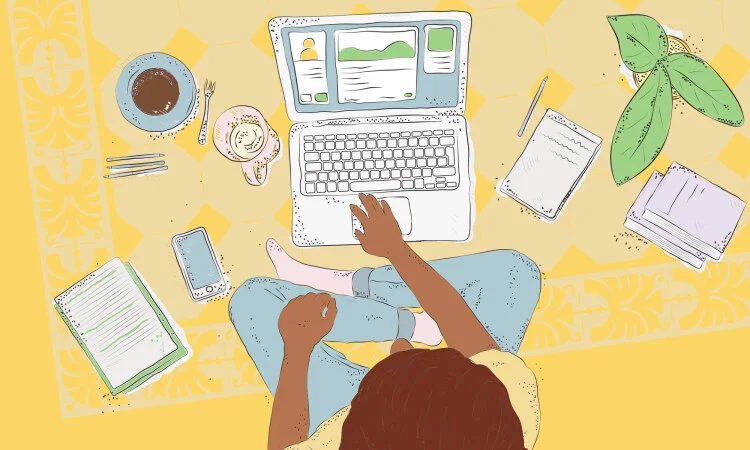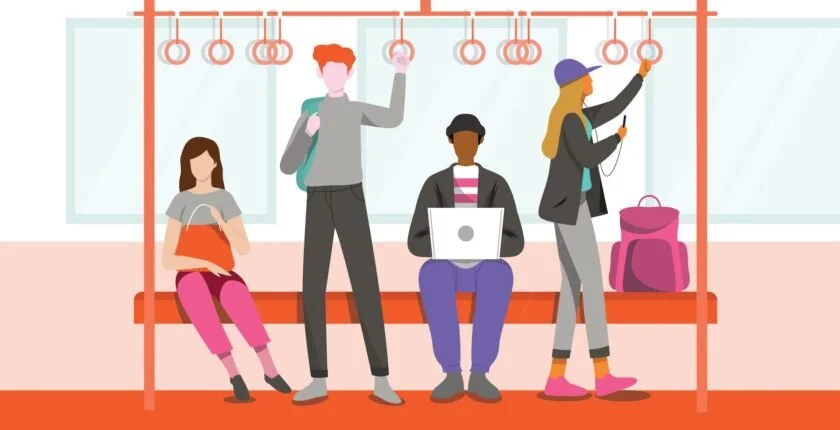Starting a PhD in the middle of a pandemic
Over the last year, all of us have had to drastically alter our lives in some way, whether that be home-schooling your children, working from home, practising extensive social distancing and hygiene in public spaces or staying at home for extended periods of time.
Just days before the first lockdown was announced in March 2020, I had been offered a place on the UCL-Wellcome PhD programme. Amongst the chaos, with the ever-extending lockdown, it was hard to plan or think about the future not knowing what would unfold over the coming months. I was increasingly anxious as people started losing their jobs facing unemployment without financial support, here I was about to leave a secure job to pursue a PhD. Honestly, I had to question whether it was the right time to take on a PhD and whether I was taking too much of a risk in the circumstances.
As the months followed and I was asked to shield whilst the pandemic picture grew much worse all over the world, my mental health took a rapid decline and my motivation dropped to an all-time low. Not being able to visualise the future and whether I would be able to take on the PhD if I would still be required to shield was causing me a lot of stress. Thankfully, the team reassured me that they would find a way to accommodate the situation whatever it would be come September. Encouragingly, we were able to have a relatively relaxed summer and things seemed to be looking bright leading up to the start date but almost suddenly, things started to worsen as schools opened in September and universities were set to open campuses for students. Nevertheless, I handed in my notice and began preparing for this new and once-in-a-lifetime venture.
Before the start, we were told by UCL that most teaching and work would be delivered online unless it was absolutely necessary to be on campus (for example, if you needed to be in a lab) as undergraduate students were to be prioritised for on-campus learning until at least January but we would have the opportunity to meet the rest of the cohort and the committee at the ICN for our weekly skills seminar (social distancing regulations in place, of course).
Considering all that was happening, it was helpful that we had the month of October to scope out potential rotation projects for the year with potential supervisors on the programme but still have the opportunity to attend a weekly seminar at the ICN. Knowing that most of our studies would be virtual until January (at the earliest), I made the decision to move back to my family home in the Midlands so I could spend time with my grandma and family (plus the bonus of saving money on rent!). I commuted to London for the weekly seminars and lunch with the rest of the cohort. This was short-lived as COVID-19 cases began to rise rapidly and the skills seminars switched to virtual when the November lockdown was announced just as we started our first rotations. My first rotation was using existing datasets so could all be done virtually but as the rotations are short (10-12 weeks long), most projects were unable to offer data collection opportunities and if they were, these were currently all being done virtually. Essentially, everyone was in the same boat.
Overall, it was daunting starting a PhD in the middle of a global pandemic especially in the context of giving up a well-paid job when unemployment was rising but it was a now or never decision and I truly felt like I was at the stage in my career to take this on professionally, so it was a risk that was worth taking for me! My previous colleagues at McPin were incredibly supportive in helping me navigate this change and gave me the validation I needed that this was something that was right for me. It really helped being able to meet with the rest of the cohort on Zoom and then in-person weekly (especially great that we all got on so well). We made a WhatsApp group to keep in touch and also met virtually on Zoom for the skills seminars. In my opinion, the most difficult thing has been working with a lab group that you work with every day but never getting the opportunity to meet with them. You end up in a sort of awkward position of having spent a lengthy amount of time being part of the lab but there being this barrier of not knowing someone’s persona in real life or fully understanding the lab banter that you have never physically been a part of.



